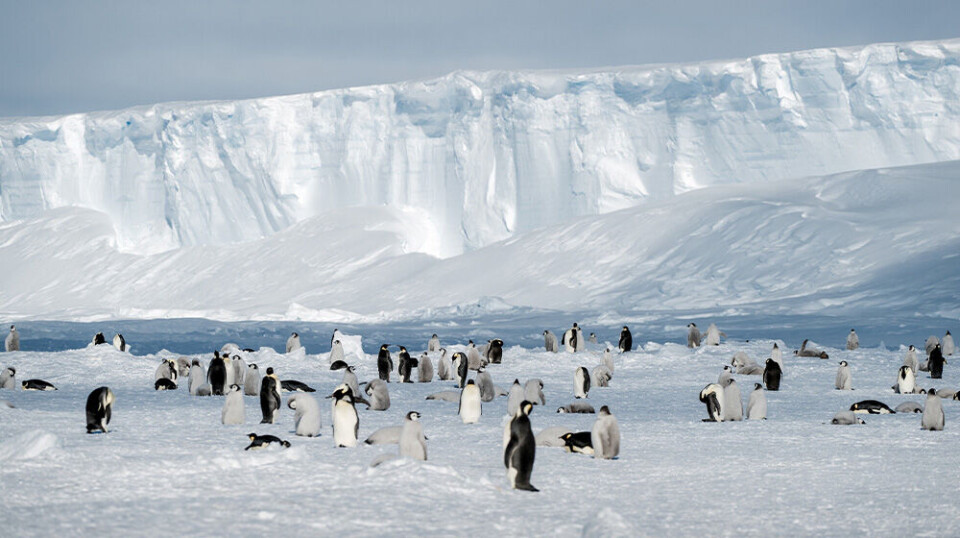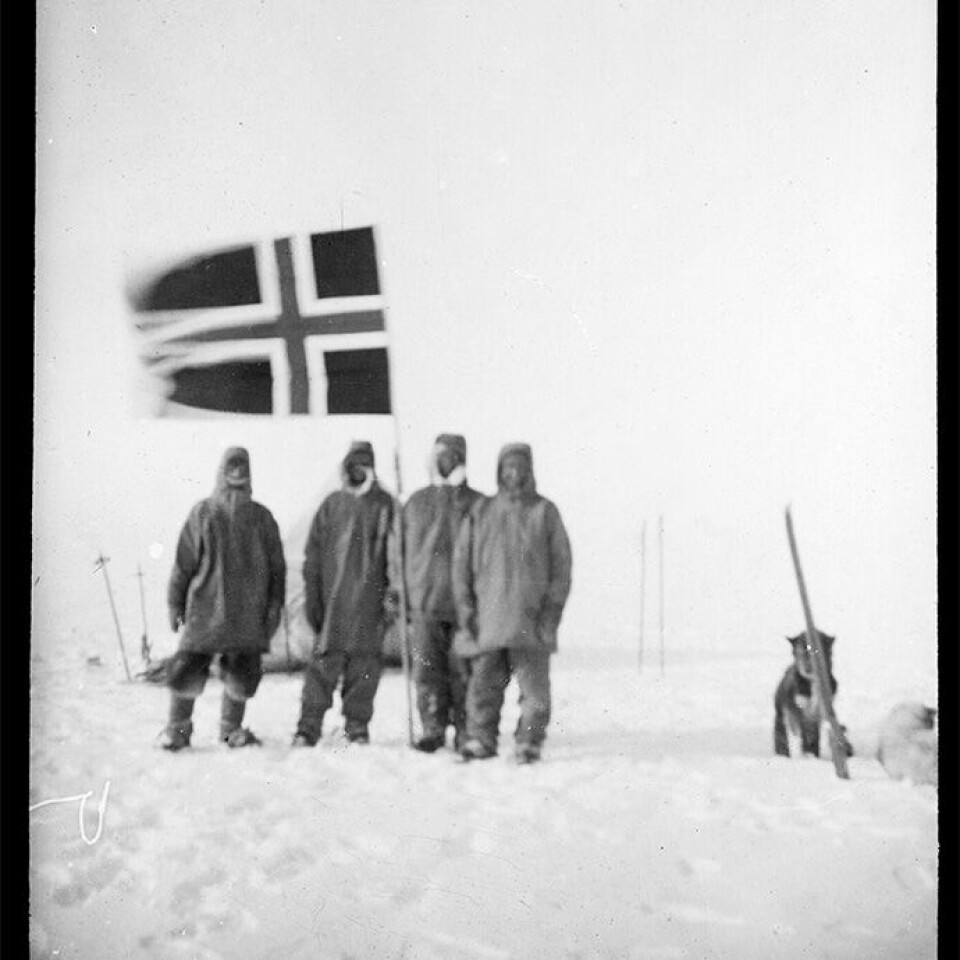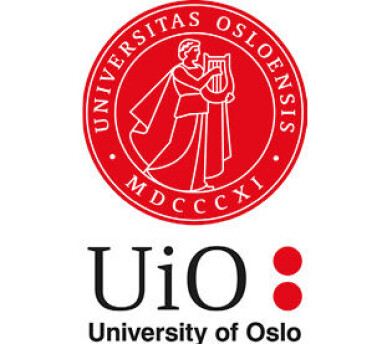THIS CONTENT IS BROUGHT TO YOU BY University of Oslo - read more
Do you believe Antarctica is a pristine paradise? Think again
The perception of Antarctica as an apolitical haven with untouched nature, solely dedicated to scientific research, is completely wrong, according to researcher.

Many of us perceive Antarctica as a distant and mysterious corner of the world.
The coldest and most windswept region on Earth was the last continent to be discovered. Today, it stands as a nature reserve devoted to peace and scientific research.

“But Antarctica is not an apolitical human paradise with untouched nature – a sort of continent for scientific inquiry alone. That’s a misconception,” says Peder Roberts, professor of the history of ideas at the University of Oslo.
He has researched the polar area for many years and is particularly interested in the relationship between politics, the environment, and scientific exploration.
“Humans have always brought their own interests to Antarctica,” he says.
The race to the South Pole
In 1911, Roald Amundsen planted the Norwegian flag at the South Pole. No one had ever set foot there before. With that, he concluded a nail-biting race against Briton Robert Falcon Scott and was hailed as a hero.
50 years later, the Antarctic Treaty came into force. It is a pact ensuring that future races between nations are predominantly carried out through scientific endeavours.
For a long time, the continent has been dedicated to research.
“All research in Antarctica is the result of a political decision, as it is through research that countries gain influence within the Antarctic Treaty,” says Roberts.
More politics than you might think
For this reason, the historian of ideas suggests it is time we rethink our perspective on Antarctica: from a protected scientific haven to a place where geopolitics, the environment, and science intersect and influence our future.
“This doesn’t mean that the research is any less valuable or credible, but that we must acknowledge how science is a tool for conducting politics in Antarctica, not an alternative to it,” he says.
Roberts sees Antarctica as a prime example of how science and politics blend together.
“There's no such thing as purely environmental issues. All questions of nature preservation are inherently political. It’s humans who assign value to nature and the environment and decide when, why, and how areas should be protected,” he says.
“But environmental and climate policy is a distinct and well-known field. Don’t you think people are aware of this connection?”
“Yes, people are aware that environment and politics are linked. But environmental policy is also always a form of economic or cultural policy,” he emphasises.
Antarctic Treaty reflects the Cold War
For those who see Antarctica as something distant and exotic, a place far removed from the political and economic structures that have shaped the rest of the world, Roberts is crystal clear:
“There’s more politics happening here than one might think. Antarctica mirrors the world to a much greater extent than one might expect. Just look at the agreements governing Antarctica.”
No country owns Antarctica, but many have claimed land on the continent, including Norway. The result eventually became the Antarctic Treaty, an international agreement that came into force during the Cold War.
“The treaty is often seen as a geopolitical exception. It prohibits all military activity on the continent, freezes sovereignty claims, and makes research the way states can secure a place at the table when decisions about Antarctica are made,” he explains.
Roberts suggests that Antarctica reflects Cold War politics in the same way the space race did.
Environmental protection: a late addition to the agenda
Only later did resource extraction and environmental protection become prominent issues.
In 1991, the parties to the treaty signed an environmental agreement ensuring Antarctica remains a nature reserve for peace and research.
This prohibits a range of activities, such as mineral extraction, introducing foreign species, and leaving any form of waste behind.
“The environmental agreement may seem like an environmental issue, and it was important to many. However, the ban on mineral extraction until at least 2048 also addressed a problem concerning economic equity,” says Roberts.
Countries outside the Antarctic Treaty feared they would be excluded from future gains, much like how wealthy nations and colonial powers had previously dominated natural resource extraction in other parts of the world.
“Saying no one can access Antarctic mineral resources was both a way to show respect for environmental conservation and to avoid complaints about unfair resource distribution,” he explains.

“The parties resolved the ownership debate by setting it aside. This was a solution that suited the times. It freed countries like Norway from costly obligations and allowed superpowers to showcase their scientific prowess,” says Roberts.
Today, 54 states have signed the treaty.
An Antarctic Paradox
The ice in Antarctica is melting. If unstable ice shelves collapse, global sea levels could rise by several metres, posing a threat to millions of people further north.
Roberts argues that the climate crisis underscores Antarctica’s significance in global politics even more.
“Antarctica has gone from being the most protected continent to being one of the most threatened – and threatening,” he says.
Roberts has researched this with philosophy professor Alejandra Mancilla at the University of Oslo. They call it the Antarctic Paradox.
The parties to the Antarctic Treaty are committed to preserving the environment on the continent. But what about carbon emissions at home?
“Protecting the Antarctic environment is impossible without changing human activities outside Antarctica,” says Roberts.
Science as currency
Only nations engaged in significant research activities in Antarctica get to have a say over the continent.
“Conducting extensive research, even of high quality, should not be the deciding factor for influence. Countries may heavily invest in environmental research while simultaneously engaging in oil exploration and exacerbating climate change at home,” says Roberts.
He has considered alternatives to the current system.
“Imagine if the countries most affected by climate change in Antarctica, such as Bangladesh, the Maldives, or Kiribati, were given decision-making power. What would happen then?” he wonders.
That is a question to which we do not have an answer.
Antarctica is not irrelevant
Roberts aims to help us understand that Antarctica cannot be dismissed as a mere laboratory that is insignificant in the global context.
“History has repeatedly shown that power over the environment is always linked to power over people. It’s fundamentally wrong to view the environment almost like a political luxury that can be set aside when convenient,” he says.
Does Antarctica still feel far away?
“If your house becomes flooded in the future, it will most likely be due to Antarctica. Antarctica is not distant and irrelevant to our lives; it is close and threatening. The continent has a direct impact on us, and we cannot afford to ignore it,” he says.
Reference:
Roberts, P. Does the science criterion rest on thin ice?, The Geographical Journal, 2020. DOI: 10.1111/geoj.12367

This content is paid for and presented by the University of Oslo
This content is created by the University of Oslo's communication staff, who use this platform to communicate science and share results from research with the public. The University of Oslo is one of more than 80 owners of ScienceNorway.no. Read more here.
More content from the University of Oslo:
-
Mainland Europe’s largest glacier may be halved by 2100
-
AI makes fake news more credible
-
What do our brains learn from surprises?
-
"A photograph is not automatically either true or false. It's a rhetorical device"
-
Queer opera singers: “I was too feminine, too ‘gay.’ I heard that on opera stages in both Asia and Europe”
-
Putin’s dream of the perfect family




































